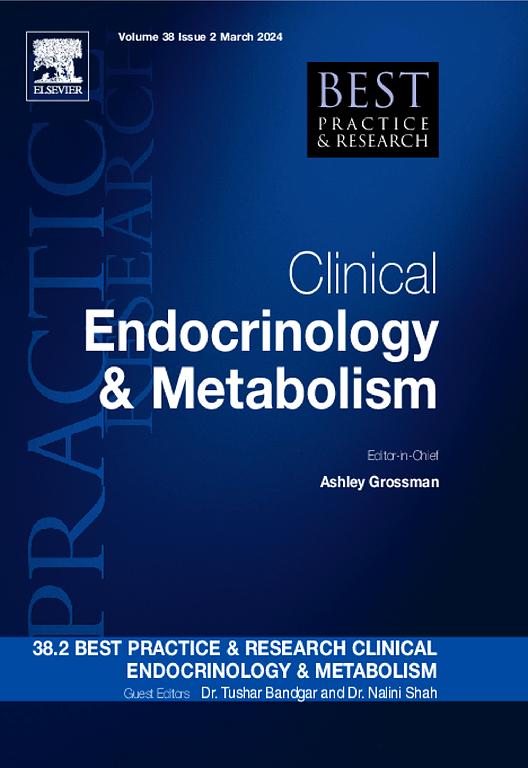性发育患者生育能力的差异。
IF 6.1
1区 医学
Q1 ENDOCRINOLOGY & METABOLISM
Best practice & research. Clinical endocrinology & metabolism
Pub Date : 2025-07-01
DOI:10.1016/j.beem.2025.102017
引用次数: 0
摘要
随着对生育能力的日益关注,对性别发育差异(DSD)的管理也在不断发展。提供者和患者之间关于生育潜力和保留生育能力的选择的知识差距仍然存在。它很复杂,需要个性化评估。生育潜力因诊断、性腺状态和年龄而异。许多DSD疾病会增加患性腺生殖细胞肿瘤的风险,这促使人们考虑预防性性腺切除术和潜在生殖细胞或配子的丧失。这些潜在的配子也可能与性别指定或性别认同不匹配。DSD的一些原因是遗传的,因此遗传咨询对解决遗传风险很重要。由于需要在儿科时期做出一些管理决定,个人可能无法同意或同意,决定可能由父母做出,因此生育方面的考虑进一步复杂化。抗逆转录病毒技术和生育能力保存技术的进步改善了结果,研究技术可能会提供更多的未来选择。本文章由计算机程序翻译,如有差异,请以英文原文为准。
Fertility in differences of sex development patients
Management of differences of sex development (DSD) continues to evolve, with increased attention to fertility. Knowledge gaps remain among providers and patients about fertility potential and options for fertility preservation. It is complicated, requiring individualized assessment. Fertility potential varies by diagnosis, gonadal status and age. Many DSD conditions confer increased risk of gonadal germ cell tumor, prompting consideration of prophylactic gonadectomy and loss of potential germ cells or gametes. These potential gametes also may not match the sex designation or gender identity. Some causes of DSD are heritable, thus genetic counseling is important to address inheritance risks. Fertility considerations are further complicated by the need for some management decisions to occur during the pediatric period, an individual may not be able to assent or consent, and decisions may be made by parents. Advances in ART and fertility preservation techniques have improved outcomes, and investigational techniques may offer more future options.
求助全文
通过发布文献求助,成功后即可免费获取论文全文。
去求助
来源期刊
CiteScore
11.90
自引率
0.00%
发文量
77
审稿时长
6-12 weeks
期刊介绍:
Best Practice & Research Clinical Endocrinology & Metabolism is a serial publication that integrates the latest original research findings into evidence-based review articles. These articles aim to address key clinical issues related to diagnosis, treatment, and patient management.
Each issue adopts a problem-oriented approach, focusing on key questions and clearly outlining what is known while identifying areas for future research. Practical management strategies are described to facilitate application to individual patients. The series targets physicians in practice or training.

 求助内容:
求助内容: 应助结果提醒方式:
应助结果提醒方式:


